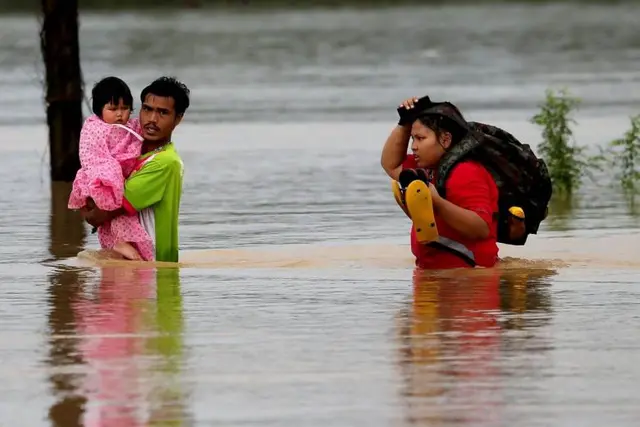Garment Manufacturers Association of Cambodia (GMAC) on Monday agreed to increase salaries for the workers in the kingdom's garment and footwear industries, according to a press release after a closed door meeting.
The meeting was attended by Minister of Social Affairs Ith Samheng, Minister of Labor Vong Sauth, GMAC's president Van Sou Ieng, and representatives of trade unions in Cambodia.
"The meeting agreed in principle to discuss wage increase for the workers," the press release said. "All trade unions should meet among them to set a unanimous proposal on minimum pay rise for workers in order to negotiate with employers."
It said the International Labor Organization would be a coordinator for this task.
According to the press release, all relevant parties will meet again on Feb. 26 in order to decide the minimum pay rise.
The wage hike negotiation was made after trade unions repeatedly appealed to the government to urge manufacturers to increase salaries for the workers from the year 2013.
"Currently, minimum wage for a worker is 61 U.S. dollars a month. It is very low when prices of food and fuel are rocketing up, so it severely affects workers' living conditions," Chea Mony, president of Free Trade Union of Workers, which is the kingdom's largest trade union, wrote in a request to the GMAC's president Van Sou Ieng earlier this month.
"To facilitate workers' difficulties, I'd like to ask the president to discuss and increase the minimum wage for a worker to 120 U.S. dollars a month," he said.
Garment industry is Cambodia's largest foreign exchange earner. The sector comprises more than 300 factories, employing some 335, 400 workers--91 percent of them are female.
The country exported garment and textile products in equivalent to 4.6 billion U.S. dollars last year, up 8 percent year-on-year, according to a report of the commerce ministry last week.
The United States and European countries are the major buyers, and other clients are Canada, Japan, South Korea and China.
 简体中文
简体中文

